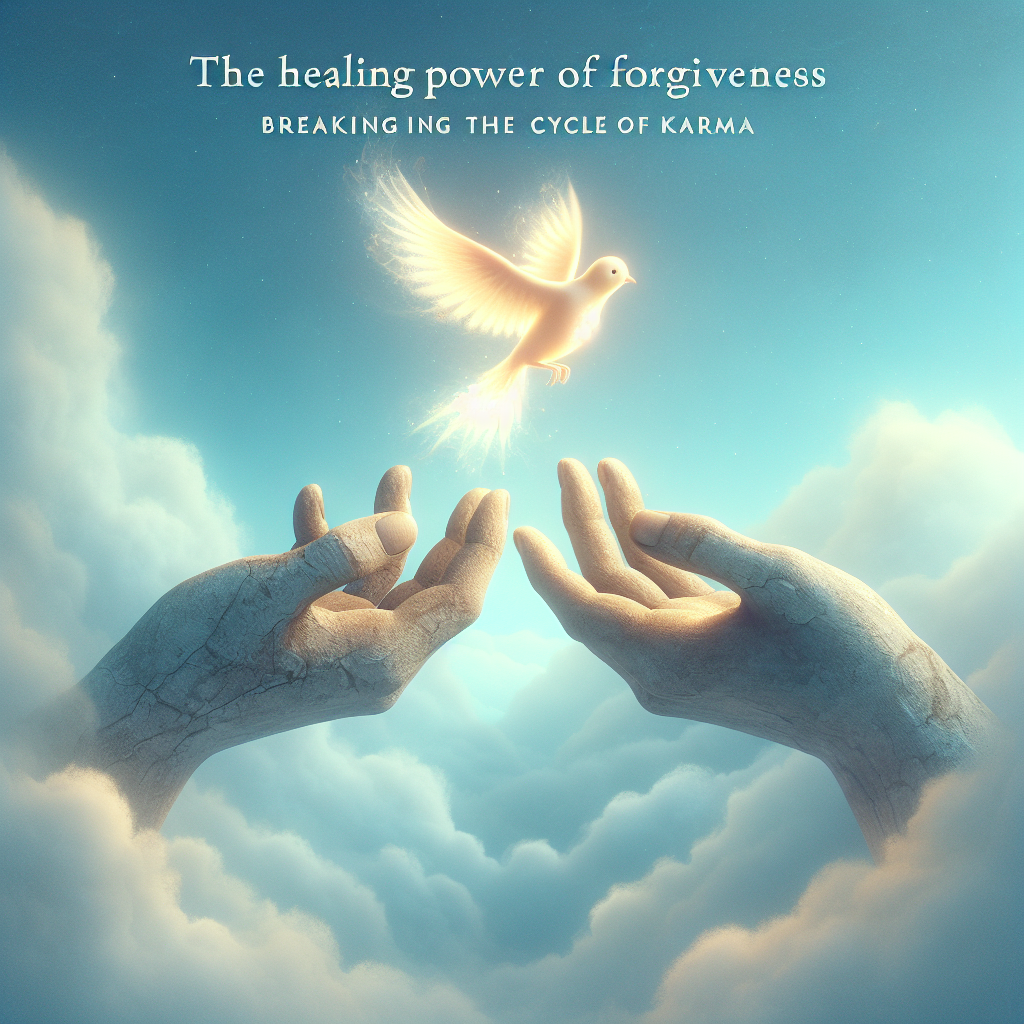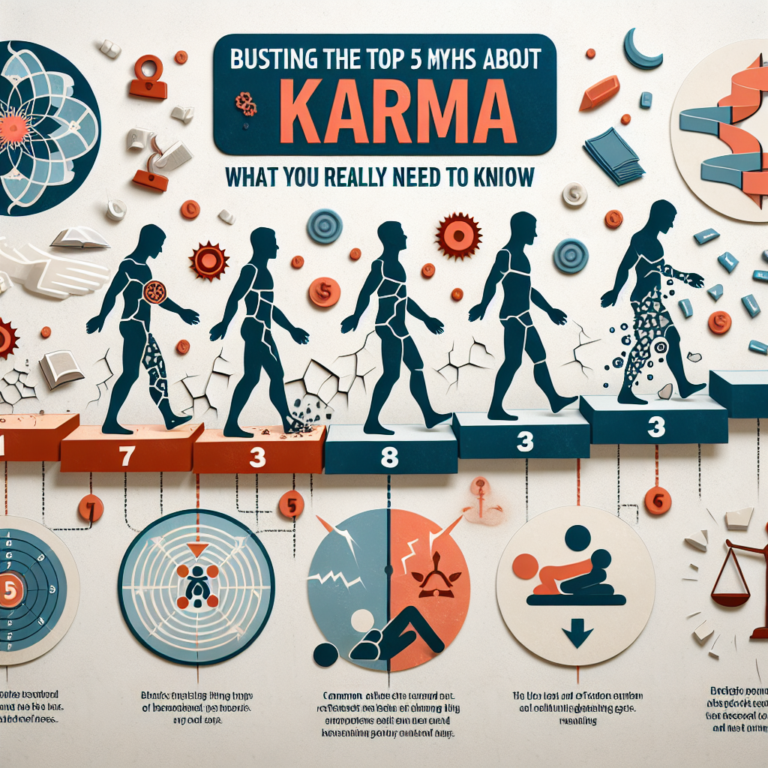Forgiveness is often seen as a noble act, an ethical or moral decision to let go of resentment towards someone who has wronged us. Yet, the true power of forgiveness extends beyond just our interactions with others; it has profound implications for our own personal healing and growth. In a world where grievances can weigh heavily on our hearts and minds, understanding the healing power of forgiveness offers a pathway to liberation, self-discovery, and breaking the cycle of karma.
Understanding Forgiveness
At its core, forgiveness involves the voluntary decision to give up resentment and the desire for revenge. It doesn’t imply forgetting the wrongs or excusing the behavior; rather, it’s a conscious choice to replace negative emotions with positive ones. When we choose to forgive, we are not just releasing others from their debts; we are releasing ourselves from the bonds of anger, bitterness, and pain.
While the act of forgiveness can be incredibly challenging, considering the emotions involved—hurt, betrayal, anger—it remains essential for mental and emotional well-being. Failure to forgive can lead to prolonged anguish and mental distress, creating an environment where negative feelings fester and reproduce.
The Psychological Impact of Holding Grudges
Research has demonstrated that harboring resentment can have significant psychological implications. People who hold onto grudges may experience increased levels of stress, anxiety, and depression. Studies have shown that forgiveness has the potential to reduce these feelings, improve overall mental health, and lead to better interpersonal relationships.
When we cling to anger and resentment, we perpetuate negative feelings that ultimately harm our mental state. As time passes, the grievances can manifest physically, leading to a cycle of health-related problems. Chronic stress often results in physical ailments such as hypertension, heart disease, and a weakened immune system, illustrating the interplay between our emotional and physical health.
Forgiveness and Karma
Karma, often defined as the law of cause and effect within our actions, plays a significant role in dictating our experiences of life. Many believe that holding onto negative emotions or harboring unforgiveness can create negative karma, leading to continued cycles of pain and suffering. Release from this cycle involves the act of forgiveness, which allows individuals to let go of old wounds and clear the space for healing.
By forgiving others, we free ourselves from the cycle of karmic debt that can be passed from one situation to another. When we forgive, we create a new cause that can lead to positive effects, altering our karmic path and opening the door to lighter experiences. This shift allows us to approach life with increased compassion and understanding, fostering healthier interactions and relationships moving forward.
The Benefits of Forgiveness
The benefits of forgiveness are multi-faceted and profound:
1. Emotional Release
Forgiveness allows individuals to release pent-up negative emotions, breaking the cycle of resentment. It provides a feeling of lightness, enabling individuals to move forward rather than remain tethered to their past.
2. Improved Mental Health
Letting go of negative feelings reduces symptoms of anxiety and depression, leading to more stable emotional states. Studies have shown that those who engage in forgiveness practices report higher levels of happiness and life satisfaction.
3. Enhanced Relationships
Forgiveness paves the way for improved relationships. It fosters empathy, compassion, and understanding, allowing for better communication and deeper connections with others.
4. Greater Peace of Mind
Choosing to forgive offers a sense of freedom and inner peace. It allows individuals to reclaim control over their lives, thoughts, and emotions, creating a more serene mental environment.
5. Increased Resilience
Individuals who practice forgiveness often demonstrate greater resilience in the face of challenges. They can cope better with adversity, stemming from a mindset focused on healing rather than punishment.
Steps to Forgiveness
While the journey toward forgiveness can be complex and personal, several steps can assist in facilitating the process:
1. Acknowledge Your Feelings
Start by acknowledging the hurt and pain inflicted upon you. Understand that these feelings are valid.
2. Understand the Context
Try to see the situation from the other person’s perspective. This doesn’t justify their actions, but it can help you understand motivations that may have led to the behavior.
3. Make a Conscious Choice to Forgive
Recognize that forgiveness is a choice. Decide to forgive for your own sake, to free yourself from the burden of resentment.
4. Communicate (if possible)
If it’s safe and feasible, communicate your feelings to the other person. Expressing your pain can be a vital part of the healing process.
5. Let Go
Release the emotional weight associated with the grievance. This may require time and reflection, but actively reminding yourself of your decision to forgive can aid in this process.
6. Cultivate a Forgiving Mindset
Continue to practice compassion and empathy, not only towards the person who wronged you but also towards yourself. Engage in self-care activities that promote healing, such as meditation, journaling, or therapy.
Conclusion
The journey of forgiveness can be both difficult and rewarding. It offers individuals the possibility of breaking free from the burdens of their past and liberating themselves from the chains of negativity. As we embrace the healing power of forgiveness, we not only pave the way for our emotional and mental well-being but also create a more compassionate and understanding world. Ultimately, forgiveness is not just about the other person; it is about our own healing and personal evolution, breaking the cycle of karma and stepping into a lighter and brighter existence.
FAQs
Q1: Is forgiveness necessary for healing?
A: While forgiveness is not always necessary for healing, it can significantly aid in reducing negative emotions associated with pain and trauma, allowing for emotional and mental well-being.
Q2: What if I can’t forgive someone?
A: Forgiveness is a personal journey and can take time. You can still focus on healing and self-care, and sometimes seeking professional help can assist in processing your feelings.
Q3: Can forgiveness be a process?
A: Yes, forgiveness often is a process rather than a one-time decision. It involves stages and may require time, reflection, and emotional work.
Q4: Does forgiveness mean I must reconcile with the person who hurt me?
A: Not necessarily. While you can forgive someone and choose to reconcile, it is also valid to forgive someone and choose to distance yourself for your own well-being.
Q5: How does one practice self-forgiveness?
A: Self-forgiveness involves acknowledging your mistakes, understanding the circumstances surrounding them, expressing self-compassion, and making amends or commitments to do better in the future.
Through forgiveness, we embrace the possibility of transformation within ourselves, allowing for a life filled with peace, joy, and emotional freedom.
Could you please provide more details or specify what you’d like a prompt about? Whether it’s a writing prompt, a creative idea, or something else entirely, I’m here to help!, #Healing #Power #Forgiveness #Breaking #Cycle #Karma, #Healing #Power #Forgiveness #Breaking #Cycle #Karma, 1736625900, the-healing-power-of-forgiveness-breaking-the-cycle-of-karma





